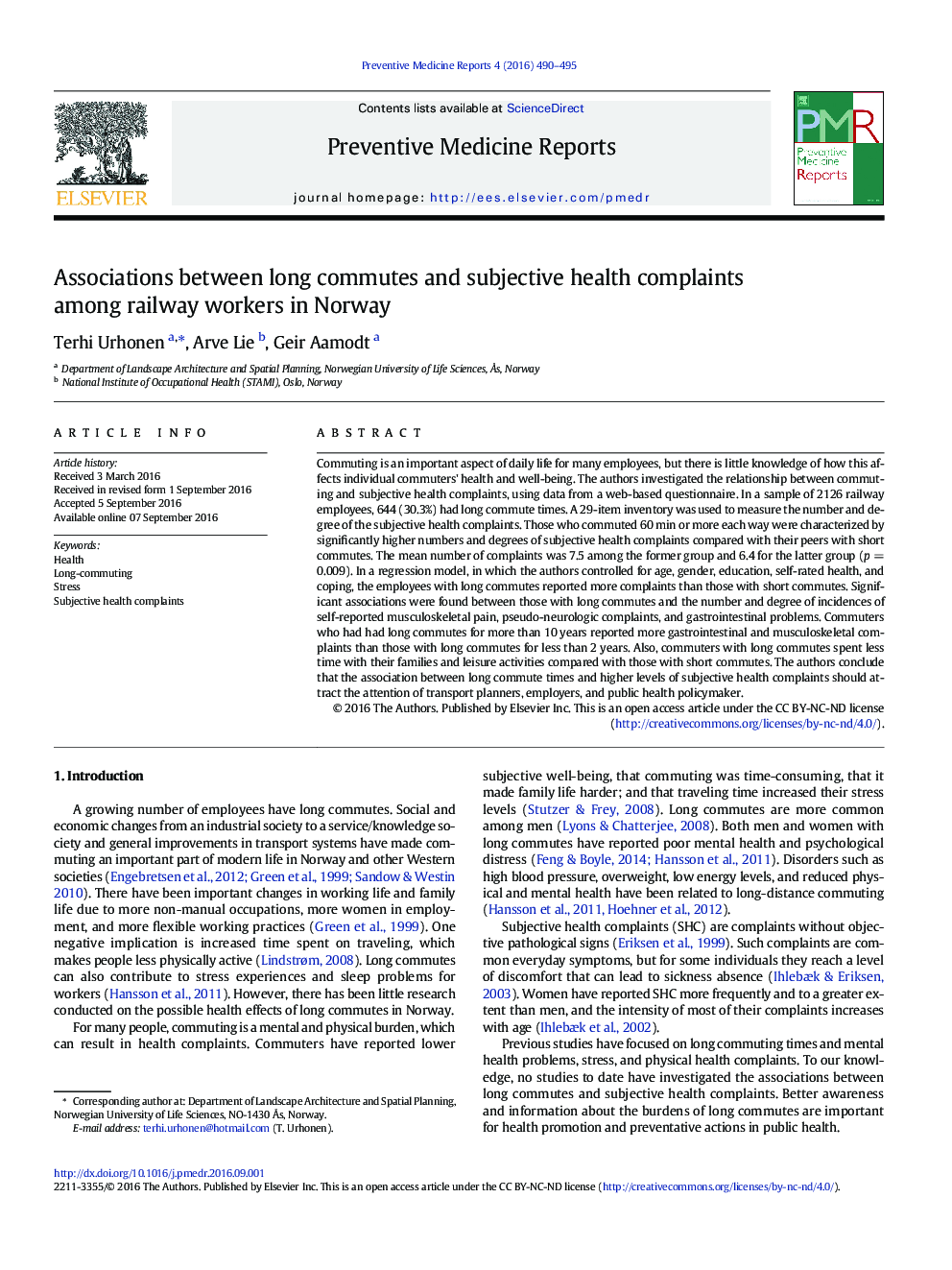| Article ID | Journal | Published Year | Pages | File Type |
|---|---|---|---|---|
| 4202302 | Preventive Medicine Reports | 2016 | 6 Pages |
•Long commuters reported more subjective health symptoms than short commuters.•Musculoskeletal, gastrointestinal and pseudo neurological complaints were most frequent.•Long commuters spent less time with their families and on leisure activities than short commuters.
Commuting is an important aspect of daily life for many employees, but there is little knowledge of how this affects individual commuters' health and well-being. The authors investigated the relationship between commuting and subjective health complaints, using data from a web-based questionnaire. In a sample of 2126 railway employees, 644 (30.3%) had long commute times. A 29-item inventory was used to measure the number and degree of the subjective health complaints. Those who commuted 60 min or more each way were characterized by significantly higher numbers and degrees of subjective health complaints compared with their peers with short commutes. The mean number of complaints was 7.5 among the former group and 6.4 for the latter group (p = 0.009). In a regression model, in which the authors controlled for age, gender, education, self-rated health, and coping, the employees with long commutes reported more complaints than those with short commutes. Significant associations were found between those with long commutes and the number and degree of incidences of self-reported musculoskeletal pain, pseudo-neurologic complaints, and gastrointestinal problems. Commuters who had had long commutes for more than 10 years reported more gastrointestinal and musculoskeletal complaints than those with long commutes for less than 2 years. Also, commuters with long commutes spent less time with their families and leisure activities compared with those with short commutes. The authors conclude that the association between long commute times and higher levels of subjective health complaints should attract the attention of transport planners, employers, and public health policymaker.
